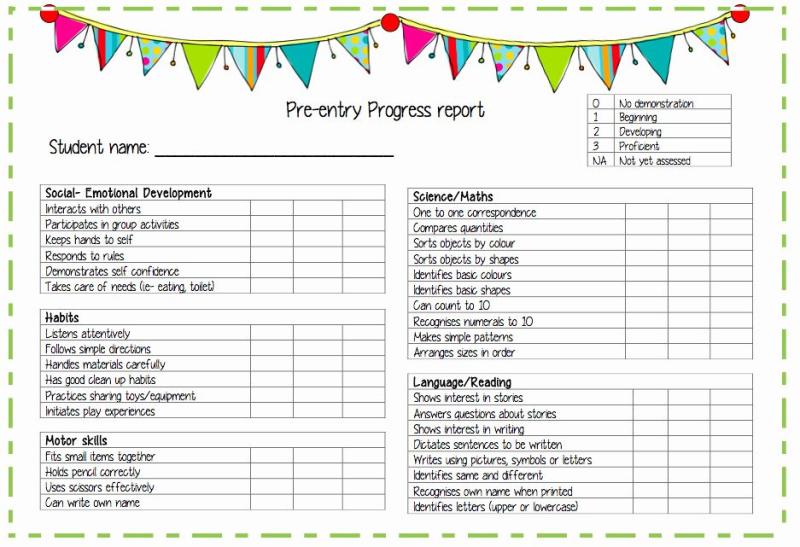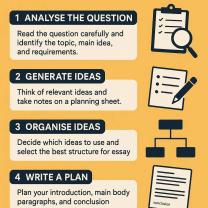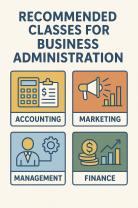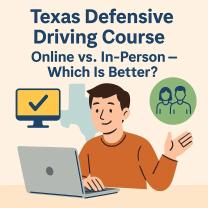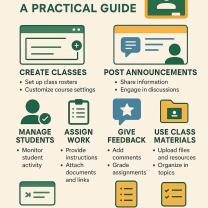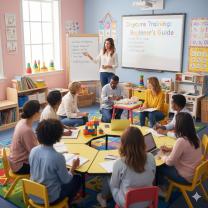What is included in a Kindergarten report card?
The contents of a kindergarten report card can vary among school districts and educational systems, but they generally include information that provides a comprehensive overview of a child's progress and development in various areas. Below are common components found in a kindergarten report card:
Student Information:
- Full name of the student.
- Grade level (Kindergarten).
- Teacher's name.
- School year/term.
Attendance:
- Number of days present.
- Number of days absent or tardy.
Social and Emotional Development:
- Behavior and conduct assessments.
- Social skills development.
- Emotional well-being and self-regulation.
Academic Subjects:
Language Arts/English Language Arts (ELA):
- Letter recognition and phonics.
- Sight words recognition.
- Listening and comprehension skills.
- Emergent reading skills.
- Writing development (drawing, letter formation).
Mathematics:
- Number recognition.
- Counting skills.
- Basic addition and subtraction concepts.
- Shape and pattern recognition.
- Measurement concepts.
Science:
- Basic science concepts (living/non-living, seasons, etc.).
- Exploration and observation skills.
Social Studies:
- Basic understanding of community and family.
- Simple concepts of history and geography.
Fine and Gross Motor Skills:
- Fine motor skills development (cutting, coloring, drawing).
- Gross motor skills development (coordination, balance).
Work Habits and Effort:
- Independence and initiative.
- Ability to follow directions.
- Work completion and effort.
Special Subjects:
- Evaluation of performance in subjects like art, music, physical education, or foreign language if applicable.
Teacher Comments:
- Personalized comments from the teacher regarding the student's strengths, areas for improvement, and overall progress.
Parent/Guardian Comments:
- Space for parents or guardians to provide their input or comments.
Goals and Objectives:
- Some report cards may include specific goals or objectives for the student to work on in the coming term or year.
It's important to note that the format and specific criteria on a kindergarten report card may vary from one educational institution to another. Additionally, many report cards use a combination of letter grades, numerical scores, and qualitative comments to provide a well-rounded assessment of a child's development. Parents are encouraged to discuss the report card with teachers to gain a deeper understanding of their child's progress and to address any questions or concerns.
What information is typically included in a Kindergarten report card?
Kindergarten report cards typically include the following information:
- Academic development: This may include information about the child's reading, writing, and math skills.
- Social and emotional development: This may include information about the child's ability to interact with others, follow directions, and manage their emotions.
- Physical development: This may include information about the child's gross motor skills, fine motor skills, and overall health and fitness.
- Teacher comments: This may include the teacher's overall assessment of the child's progress and areas where they may need additional support.
Some kindergarten report cards may also include information about the child's behavior, attendance, and participation in extracurricular activities.
How do Kindergarten report cards assess a child's development and progress?
Kindergarten report cards assess a child's development and progress by using a variety of methods, including:
- Direct observation: Kindergarten teachers observe their students throughout the day and note their progress in different areas.
- Assessments: Kindergarten teachers may use formal or informal assessments to measure a child's skills and knowledge in different areas.
- Parent input: Kindergarten teachers may also ask parents for feedback on their child's development and progress at home.
Are there standardized formats for Kindergarten report cards?
No, there are no standardized formats for kindergarten report cards. Each school district is free to design their own report cards. However, most kindergarten report cards include similar types of information, such as academic development, social and emotional development, physical development, and teacher comments.
Some schools may also use a rubric to assess a child's progress in different areas. A rubric is a scoring guide that provides specific criteria for each level of performance. This can help to ensure that the child's progress is assessed fairly and consistently.
